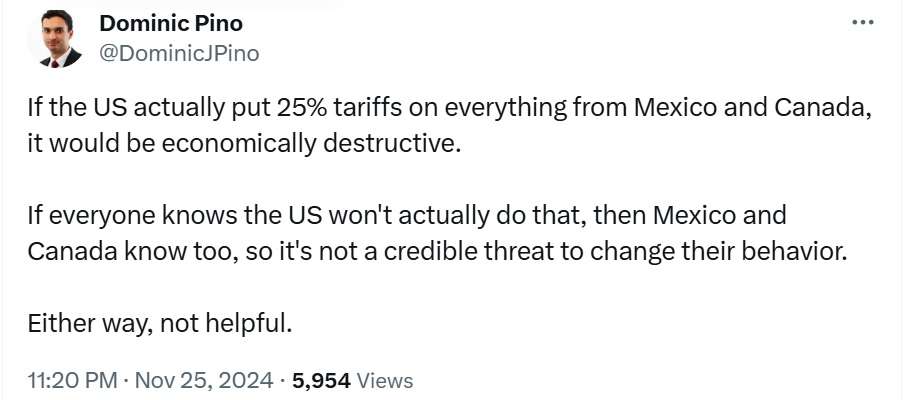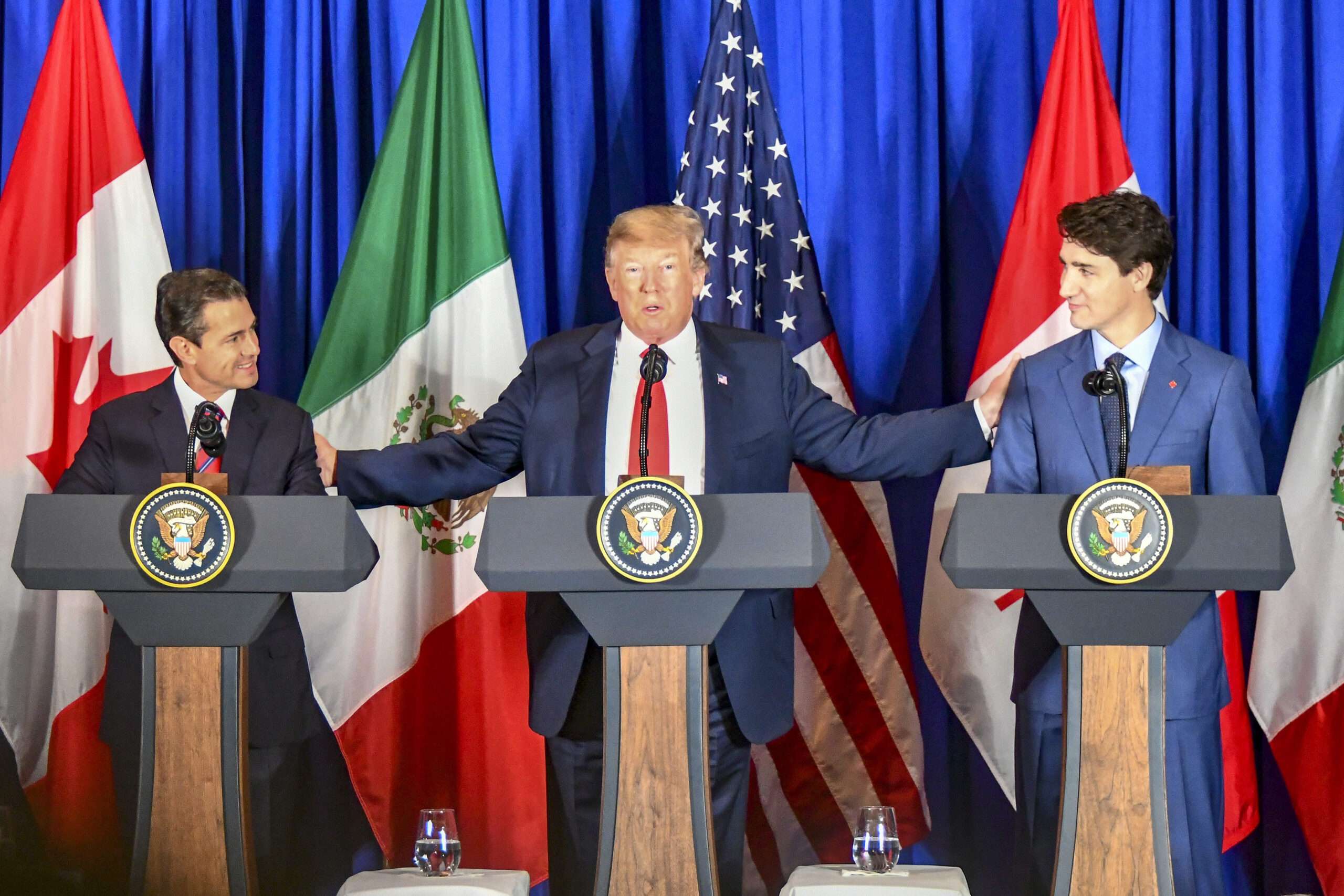President-elect Donald Trump announces plans to raise import taxes immediately upon taking office.
In a recent post on Truth Social, Trump stated that he intends to impose a 25% tariff on all products coming into the United States from Mexico and Canada as one of his first executive orders on January 20.
He justified this decision by citing the influx of people crossing the border from these countries and indicated that the tariffs would remain until they take action to address issues related to drugs and migrants.
Subscribe to Reason Roundup for daily news updates.
Get articles like this delivered to your inbox every morning. Sign up for Reason Roundup for free.
Additionally, Trump pledged to impose a 10% tariff on all imports from China, building upon tariffs implemented during his first term in office.
While some may question the effectiveness of using tariffs to address border security and drug-related issues, the potential impact on American consumers is a significant concern. The proposed tariffs on Mexican and Canadian imports could result in a $210 billion tax increase, leading to higher prices on various goods.
Furthermore, the proposed tariffs could potentially violate the United States-Mexico-Canada Agreement (USMCA), risking a continent-wide trade war and threatening billions of dollars in annual trade.
While some officials attempt to downplay the potential impact of new tariffs, economists warn that such measures could lead to price hikes, particularly affecting items like fresh produce and crude oil.
Is this all a negotiating tactic? While the implementation of tariffs requires more than social media posts, Trump’s early announcements indicate a strong stance on trade policy. The possibility of negotiations remains uncertain, as the threat of immediate tariffs leaves little room for discussion.
Given the significant economic implications of unilateral tariff decisions, there is growing pressure on lawmakers to require congressional approval for new tariffs, highlighting the need for legislative oversight in trade matters.

In Memoriam: Fred Smith, founder of the Competitive Enterprise Institute (CEI), passed away recently, leaving behind a legacy of principled advocacy and dedication to free market ideals.
His impact on the free market movement and the inspiration he provided to many individuals will be remembered and cherished by those who knew him.
Quick Hits
- President Joe Biden proposes expanding Medicare and Medicaid coverage to include new anti-obesity drugs, potentially benefiting millions of Americans.
- Special Counsel Jack Smith seeks to drop charges against President-elect Donald Trump related to election interference and mishandling of classified information.
- Spain announces plans to invest $22 billion in phasing out nuclear power plants, raising concerns about energy supply.
- Backpage founder Michael Lacey is released on bail during his appeal process for money laundering charges, while his colleagues remain in custody.




